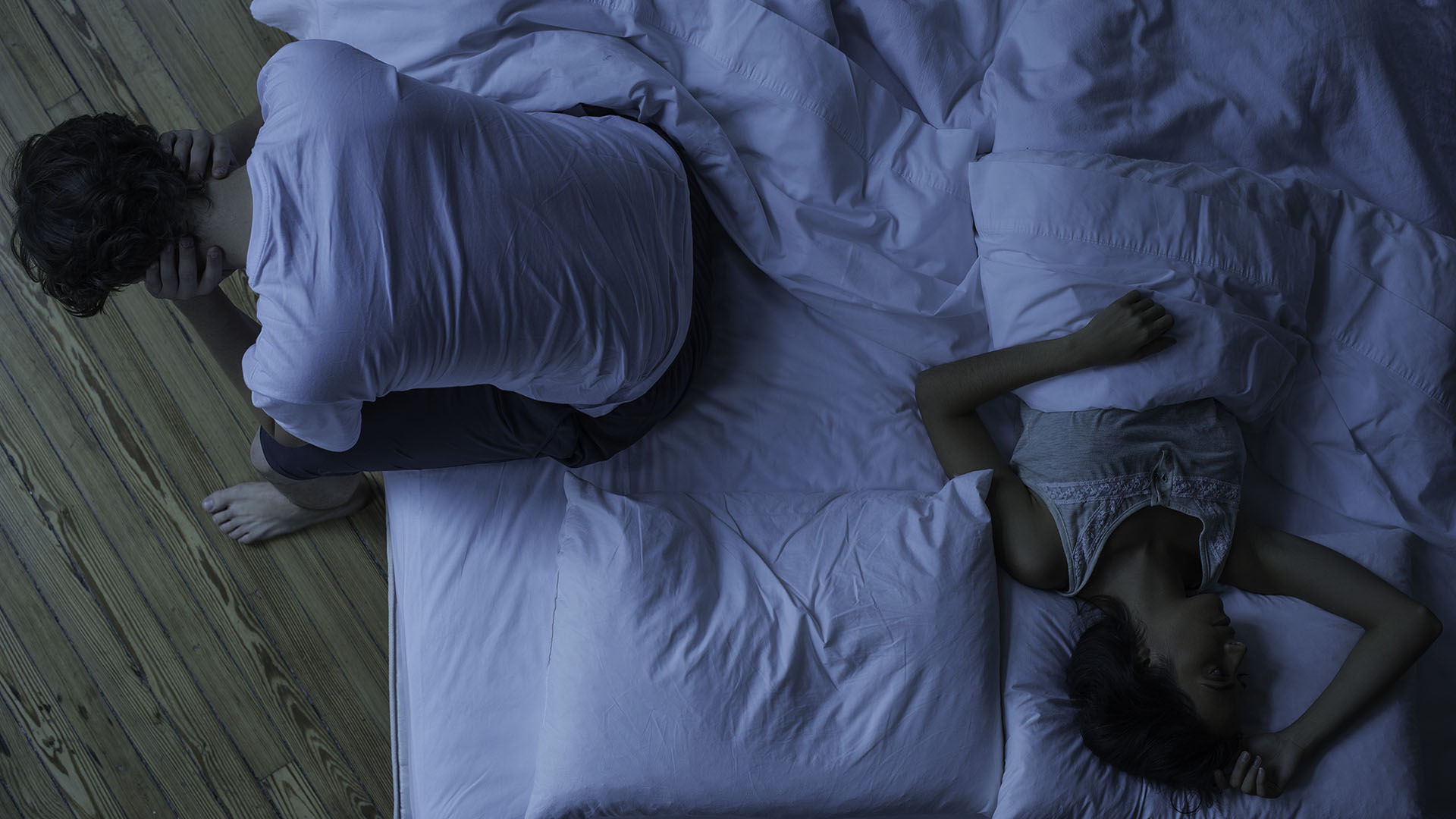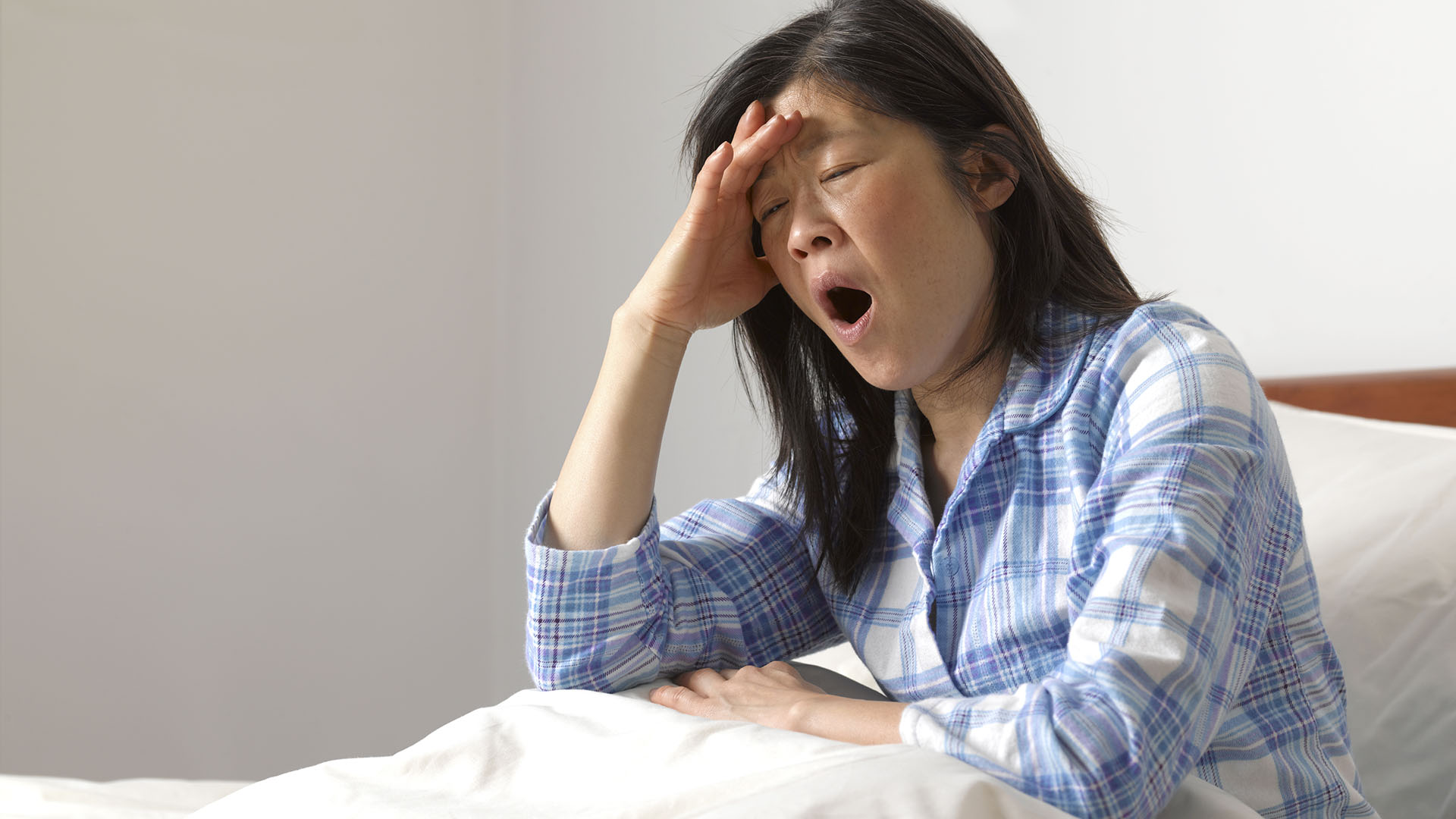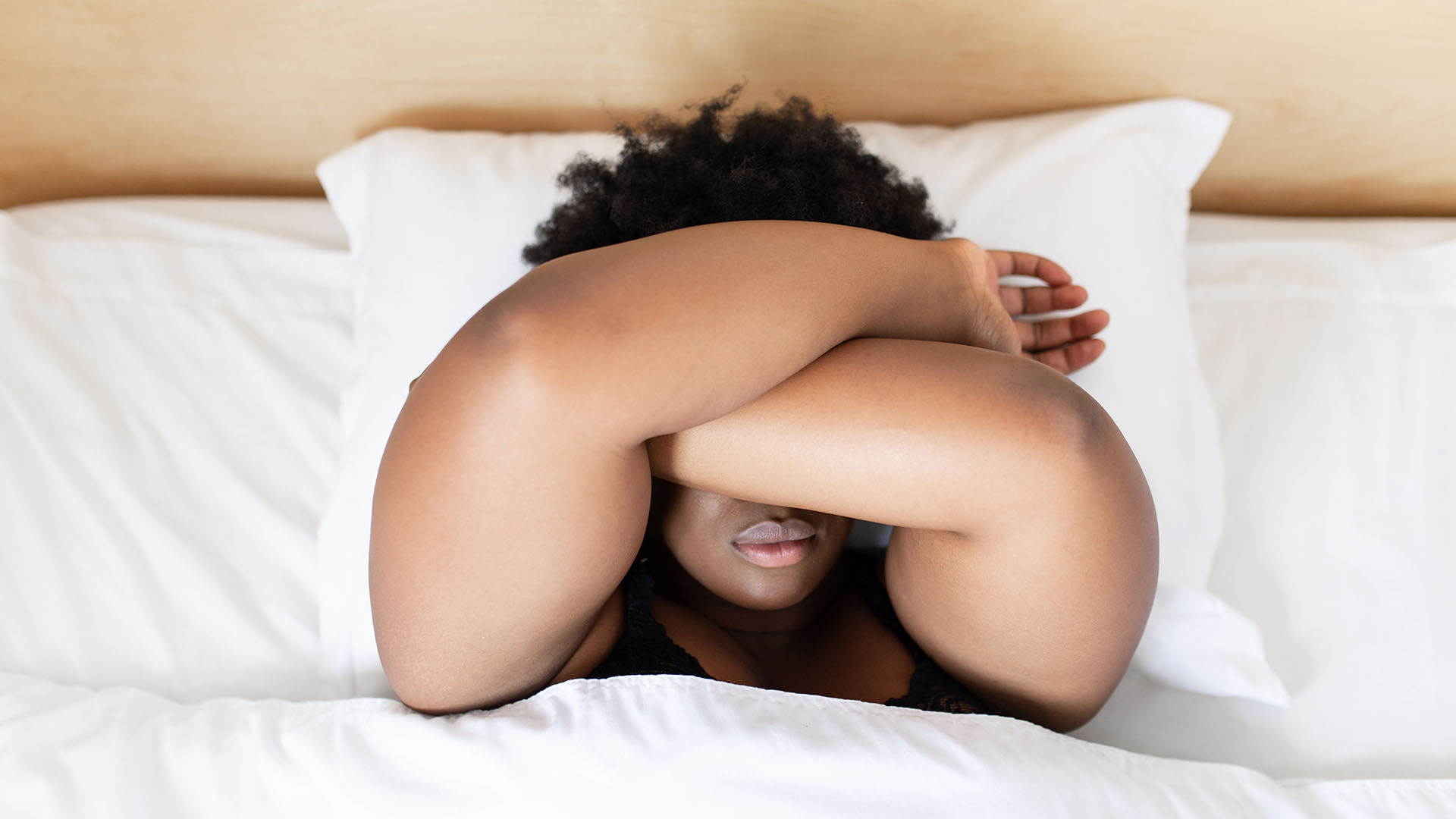Insomnia: what is it, what's the cause, and how to tackle it
Reclaim your bedtime with everything you need to know about insomnia

Lying awake at night while fruitlessly wishing our brains would switch off and let us sleep is a situation we’re all familiar with. But when does an inability to sleep become an issue, and how can we tackle it? And when is it considered insomnia?
To help you understand more about insomnia, including the causes and the potential treatments, we’ve done the research and spoken to Dr Lindsay Browning, a sleep expert at Trouble Sleeping and author of the self-help sleep book Navigating Sleeplessness. Read on for everything you need to know about banishing insomnia and getting a good night’s kip.
What is insomnia?
First things first: you’ve probably heard of insomnia, but what exactly is it? “Insomnia is a problem falling asleep, staying asleep, or waking up too early and not feeling refreshed,” explains Dr Browning. But how does this differ from having an occasional night of sleeplessness? “Insomnia is a prolonged period of poor sleep, which differs from the odd night of poor sleep, such as the night before an exam,” adds Dr Browning.
Understandably, insomnia can be incredibly difficult to deal with. After all, most adults need between seven to eight hours of kip to be able to function at their best throughout the day, so missing out on this crucial time can leave you feeling drained while tackling low energy and a low mood. But rest assured, there are treatments available to help.
What causes insomnia?
Knowledge is power, so understanding the causes of insomnia can help you to nip it in the bud more effectively. As Dr Browning explains, insomnia can have many different causes. “Insomnia can be caused by things such as stress and anxiety, pain causing discomfort at night, poor sleep hygiene or even side effects from certain medications,” she says. If you’re struggling to pinpoint what could be causing your insomnia, take a look at the techniques at the end of this article; there could be an (easily fixed) lifestyle factor at play.

What are the different types of insomnia?
There are a number of different types of insomnia that could be affecting your ability to enter the land of nod. These include:
Sleep onset insomnia: This is where “someone has difficulty falling asleep,” explains Dr Browning. Do you find yourself lying in bed, wide awake, from the moment you turn out the lights to the small hours of the morning? Then yep, you could have sleep onset insomnia
Sleep maintenance insomnia: “This is where someone can fall asleep, but then wakes up in the night and struggles to fall back to sleep again,” explains Dr Browning
Primary insomnia: “This means that your sleep problem is not caused by any other physical or mental health conditions,” says Dr Browning. Which leads us on to…
Sign up to get the BEST of Tom's Guide direct to your inbox.
Get instant access to breaking news, the hottest reviews, great deals and helpful tips.
Secondary insomnia: “This is when your sleeping problem has been caused by another factor, such as iron deficiency, PTSD, depression or cancer treatment,” says Dr Browning. The good news? “If you treat the other condition, the insomnia may improve.”
How do I know if I have insomnia?
You might be wondering whether those few nights of sleeplessness you had recently would 'count' as insomnia. If you’ve experienced sleeplessness over a period of less than three months, then this is typically known as ‘short-term insomnia’ or ‘acute insomnia’. However, if you’ve struggled with sleeplessness for longer, you could be experiencing ‘chronic insomnia’.
“Chronic insomnia is where someone takes 30 minutes or more to fall asleep, wakes up during the night for 30 minutes or more, or wakes up 30 minutes or more earlier than their ideal waking time and feels un-refreshed,” explains Dr Browning. “This happens for at least three nights each week and has been happening for three or more months.”
Can you cure insomnia?
Happily, the answer to the question of whether you can cure your insomnia is generally a resounding yes. The treatment method will depend on the cause of your insomnia. If lifestyle factors are affecting your ability to drift off, such as drinking caffeine late at night or not having a comfy sleep environment, then tweaking these should prove effective. Equally, “if the insomnia is caused by a very stressful period at work or home, then once the stressful event has stopped, the insomnia may recover by itself”, adds Dr Browning.
If you’re still struggling to sleep or experiencing symptoms of sleep deprivation, it might be worth booking a doctor’s appointment, to discuss treatment options such as therapy or medication. “The recommended treatment for insomnia is CBT-I, which is a highly effective psychological therapy specifically targeting insomnia,” explains Dr Browning. “Sleeping medication may also be offered in the short term to reset the body back into a good sleeping habit. However, sleeping medication is not a long-term solution since people become tolerant to the medication and it does not fix the underlying cause of the insomnia.”

4 techniques to tackle insomnia
Are you feeling ready to tackle your insomnia and reclaim your bedtime? Try tweaking your lifestyle according to these four techniques, and hopefully counting sheep will become a thing of the past.
#1. Implement a wind-down routine before bed
It might sound obvious, but getting your mind and body into a relaxed state before bed is one of the most effective ways of tackling insomnia. “We sleep better when we’re relaxed,” points out Dr Lindsay. “Therefore, a relaxing wind down routine, including a warm bath, reading a good book or doing some yoga, may be helpful.” You could also try a spot of mindfulness; research suggests that just 20 minutes of mindful meditation a day could help tackle insomnia.
#2. Keep your room dark and quiet
A dark and quiet room is the ideal environment for sleep, so you might want to consider investing in some blackout blinds or earplugs. A dark room signals to our brains that it’s time for bed and kickstarts the release of a hormone called melatonin, which regulates our sleep patterns. “If someone’s bedroom is too light, then this can interfere with melatonin production, making it harder to fall asleep,” explains Dr Browning.
Equally, a noisy environment is likely to keep you up throughout the night, as anyone who has a snoring partner can attest. “If the bedroom is noisy, this can make it harder to fall asleep or stay asleep, because the noise will wake you back up again,” adds Dr Browning.
#3. Try cutting down on caffeine
Don’t panic, coffee lovers – you can still get your caffeine fix while tackling insomnia. The key thing is to think about when you’re drinking it. “Caffeine has a long half life,” says Dr Browning. This means that it can stay in your system long after drinking it, so avoiding all caffeinated drinks in the late afternoon and evening is crucial. “It’s advisable to not drink caffeine within at least six hours of bedtime,” adds Dr Browning.
#4. Make sure your mattress is comfortable
If you’ve been looking for an excuse to splurge on a new mattress, then this is your moment, because having a comfortable sleep environment is one of the main ways to tackle insomnia. You want your mattress to be firm and supportive, and a mattress topper could help, too. “Generally speaking, mattresses have a finite lifespan and should be replaced every eight years or so,” says Dr Browning. “You may need to replace your mattress sooner than that if you have put on a lot of weight or lost a lot of weight, or started sharing a bed with someone else."
Sarah is a freelance writer who has been published across titles including Woman & Home, The Independent, and the BBC. Sarah covers a variety of subjects, including health and wellness. For Tom's Guide Sarah often writes about sleep health and hygiene, and interviews leading sleep experts about common issues such as insomnia and sleep deprivation.

